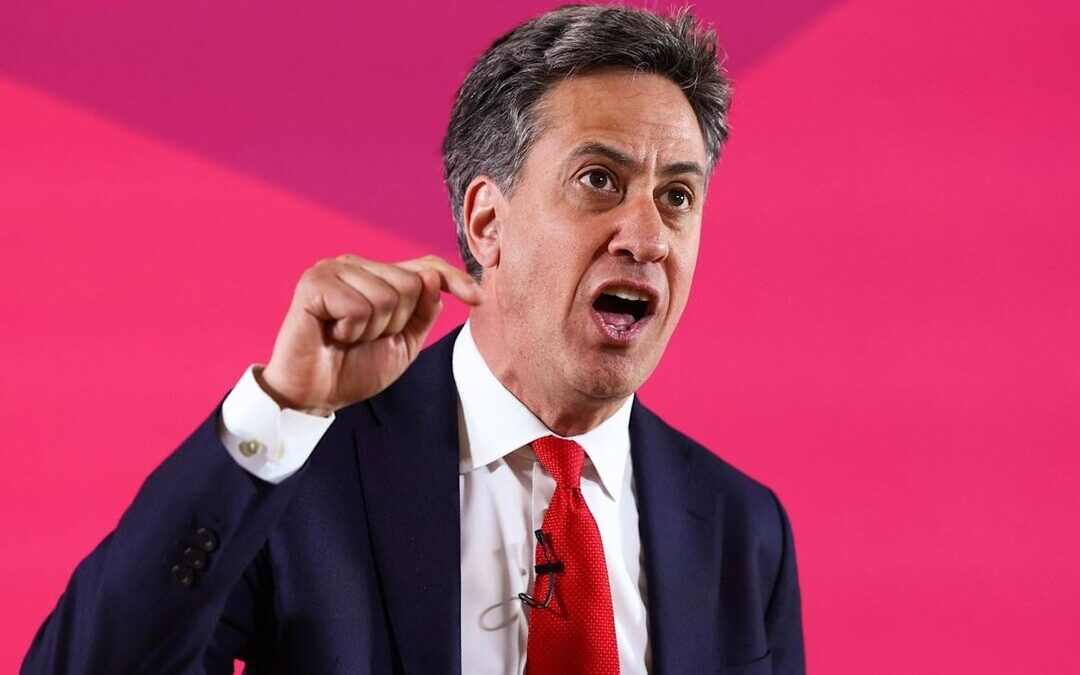UK Outlines Plans to Become Global Hub for Sustainable Finance
UK launches consultations to boost green investment and support climate transition plans for banks and major firms.
Britain unveiled plans on Wednesday to support banks and major companies in developing climate transition plans, in a move Energy Secretary Ed Miliband said would help unlock billions of pounds in clean energy investment and strengthen the country’s position as the global center for sustainable finance.
Speaking at the Climate and Innovation Forum during London Climate Action Week, Miliband outlined the government’s intention to consult on mandatory transition planning requirements as part of a broader strategy to grow the United Kingdom’s clean energy sector and deliver long-term economic growth.
“This government is determined to make the U.K. the sustainable finance capital of the world as we seize the huge economic opportunities provided by clean energy,” Miliband said.
Boosting Transition Finance
The announcement follows recommendations from last year’s Transition Finance Market Review, which highlighted the need for high-quality corporate disclosure to scale up sustainable investment.
The government has now launched three consultations focusing on climate-related transition plan requirements, new U.K. Sustainability Reporting Standards, and a voluntary assurance regime for sustainability reporting.
A survey conducted by South Pole found that 84 percent of U.K.-based financial institutions are more inclined to invest in companies with credible transition plans, underlining investor demand for transparent climate strategies.
The government said it would align any future reporting requirements with the prime minister’s target of cutting regulatory compliance costs by 25 percent, aiming to ensure that rules are proportionate and supportive of business growth.
Private Sector Support
The UK has consistently ranked first globally for sustainable finance, and 70 percent of FTSE 100 companies have already adopted key elements of transition plans voluntarily.
Since July last year, over £40 billion ($50.4 billion) in private investment has been pledged to clean energy sectors, which, according to CBI Economics, are growing three times faster than the wider economy.
Minister for Competition and Markets Justin Madders said the consultations aimed to build a “common sense” reporting framework to enhance investor confidence and support economic expansion.
Lord Alok Sharma, chair of the UK Transition Finance Council, stressed the urgency of acting quickly. “The UK can become the pre-eminent global financial center for raising transition finance, but this is a time-limited opportunity,” he said.
Industry Reactions
The initiative received broad support from across the finance and energy sectors.
SSE CEO Alistair Phillips-Davies welcomed the government’s ambition, calling transition plans “a powerful tool to build investor confidence and accelerate net-zero progress.” Rachel Solomon Williams of the Aldersgate Group praised the move as “a significant step forward” in creating a robust green finance framework.
James Alexander, CEO of UK Sustainable Investment and Finance Association, said the consultations were essential for “enhancing growth and global competitiveness,” while Heather McKay of E3G noted they could help “unlock the investment required to seize the clean economy opportunity.”
Several stakeholders emphasized the importance of global comparability. “Endorsing the ISSB standards will allow investors to fully understand long-term sustainability risks and simplify reporting expectations,” said Andrew Ninian from the Investment Association.
Next Steps
The consultations are open for public comment until Sept. 17, 2025, and form a key part of the government’s “Plan for Change,” which aims to stimulate private investment and future-proof the UK economy for a net-zero transition.
According to Department for Energy Security and Net Zero analysis, investment in low-carbon sectors represented 1.8 percent of U.K. gross domestic product in 2024 — the second highest share among Group of Seven nations.
“Our plans will transform our leading financial services sector into a global hub for green investment,” Miliband said.
Nirmal Menon
Related posts

Subscribe
Error: Contact form not found.


